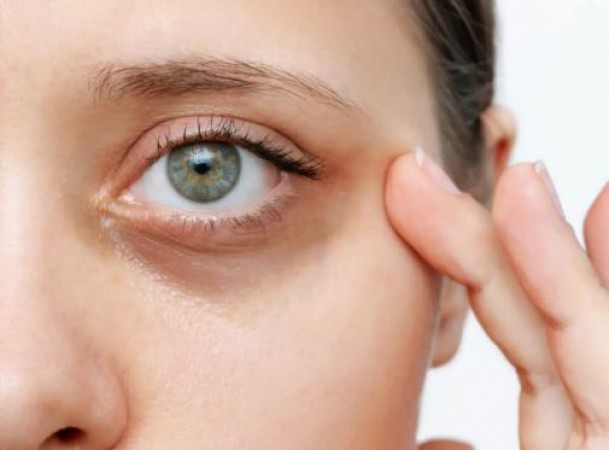
In today's era, the presence of dark circles under the eyes has become a common issue, affecting people of various ages and stemming from multiple causes. Many individuals experience dark circles due to factors such as lack of sleep or inadequate dietary intake. Some experts suggest that excessive sleep can help alleviate dark circles. However, it is essential to understand the various reasons behind the occurrence of dark circles.
I. Causes of Dark Circles:
A. Prolonged Screen Time:
The advent of technology has significantly increased screen time for many individuals, with extended hours spent on devices like TVs, laptops, and mobile phones. The continuous focus on screens can lead to eye strain, fatigue, and, ultimately, the development of dark circles. Understanding the impact of technology on eye health is crucial in formulating preventive measures.
B. Genetic Factors:
Genetic predisposition plays a significant role in the occurrence of dark circles. Some individuals are more prone to developing dark circles due to hereditary factors, making it challenging to completely eliminate this concern. Exploring the genetic component of dark circles sheds light on the complexities involved in addressing them.
C. Makeup and Cosmetics:
The use of cosmetics can contribute to the appearance of dark circles. Certain products may cause changes in the skin, leading to the prominence of dark circles. Analyzing the ingredients in cosmetics and understanding their effects on the skin is vital in mitigating this aspect of dark circle development.
D. Dehydration:
Insufficient water intake is a common yet often overlooked factor contributing to dark circles. Dehydration hampers blood circulation and the body's ability to eliminate toxins effectively. Examining the link between hydration levels and dark circles emphasizes the importance of adequate water consumption for overall skin health.
E. Lack of Sleep:
The correlation between inadequate sleep and the prevalence of dark circles is well-established. When individuals fail to get enough sleep, oxygen levels in the eyes decrease, causing blood vessels to dilate and dark circles to become more pronounced. Understanding the physiological mechanisms at play during sleep deprivation provides insights into effective preventive measures.
II. Addressing Dark Circles:
A. Sleep Hygiene:
Experts universally recommend 6 to 8 hours of sleep per night to combat dark circles. Exploring the concept of sleep hygiene and adopting practices that promote restful sleep is essential. Strategies such as maintaining a consistent sleep schedule, creating a conducive sleep environment, and practicing relaxation techniques contribute to improved sleep quality.
B. Balanced Diet:
Nutrition plays a crucial role in skin health and, consequently, in preventing dark circles. Vitamin C, known for its role in collagen production and blood circulation improvement, is a key nutrient in this context. Delving into the sources of Vitamin C and understanding its impact on skin health provides valuable insights into dietary interventions.
C. Nutrient Deficiencies:
Addressing nutrient deficiencies is imperative in the fight against dark circles. Iron, Vitamin K, Vitamin E, and lycopene are essential elements that contribute to overall skin health. Examining the role of each nutrient, identifying dietary sources, and considering supplementation when necessary form a comprehensive approach to overcoming dark circles.
D. Lifestyle Changes:
Beyond sleep and nutrition, certain lifestyle changes can positively impact dark circles. Hydration, stress management, and regular exercise are integral components. Investigating the effects of lifestyle choices on skin health allows for a holistic understanding of dark circle prevention strategies.
In conclusion, the prevalence of dark circles under the eyes has become a common concern, influenced by factors such as screen time, genetic predisposition, makeup usage, water intake, and sleep patterns. While sufficient sleep and proper hydration are crucial in addressing this issue, attention to essential nutrients like vitamin C, iron, vitamin K, vitamin E, and lycopene is equally important. By understanding the various causes and adopting a holistic approach, individuals can effectively manage and reduce the appearance of dark circles.
Significance of National Keto Day: Understanding Keto Diet Celebration
Apply This One Ingredient Mixed with Fenugreek to Halt Hair Loss
World Hypnotism Day Celebrates the Power and Truth of Hypnosis